Sidhak Verma
Myself Sidhak I am a student and a content writer. I share my ideas on social media and finding ways of earning money online on the internet.
What are Online Selling platforms? Online selling platforms are websites or apps that provide a marketplace for individuals or businesses to sell...

Image Credits: pexels
Online selling platforms are websites or apps that provide a marketplace for individuals or businesses to sell their products or services to customers over the internet. These platforms typically handle many technical and logistical aspects of selling online, such as hosting the website, processing payments, and handling shipping and returns.
Online selling platforms also offer various tools, services, and features such as inventory management, analytics, marketing, and customer support to support sellers.
Overall, online selling platforms provide an easy and convenient way for individuals and businesses to reach a large customer base and sell their products or services online.
There are several reasons why individuals and businesses may choose to sell their products or services on online platforms:
Selling online can provide several benefits for individuals and businesses, such as:
Overall, selling online can help businesses increase sales, reach a wider audience, and save on costs while providing convenience, data and analytics, marketing tools, improved customer support, and automation.
Shopify is a popular selling platform. It is a cloud-based software that gives different features to set up and run their online Store. It comes in the list of best Online Selling platforms.
Shopify offers different templates and themes. Shopify also provides a wide range of e-commerce functionalities, such as product management, inventory management, payment processing, shipping and tax calculation, and customer management. It integrates with various payment gateways, allowing users to accept customer payments using credit cards, PayPal, and other methods. It also allows users to set up product shipping and tax rates.
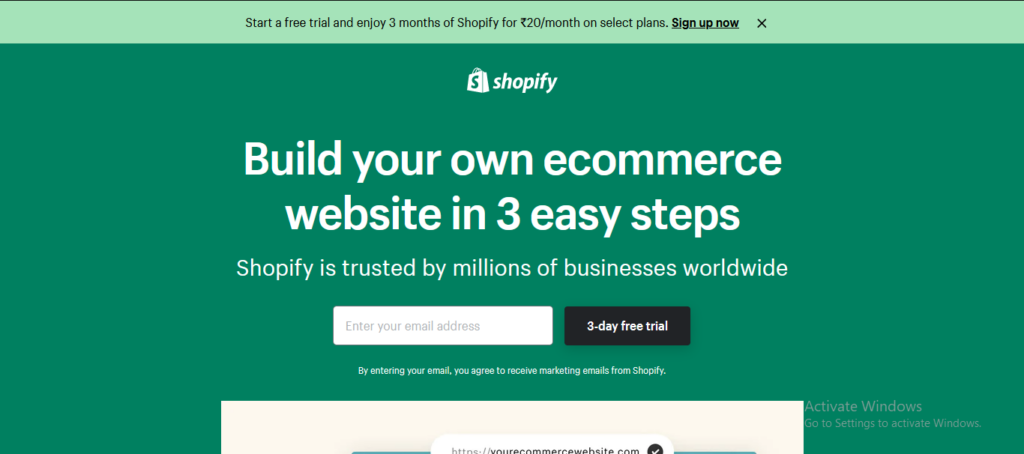
In addition, Shopify has an app store where users can find various apps and plugins to add extra functionality to their Store.
In summary, Shopify is a comprehensive and user-friendly e-commerce platform that provides everything users need to set up and run their online Store, including website design, product management, payment processing, shipping and taxes, marketing and SEO, analytics, mobile optimization, and app store.
There may be better options for larger companies or those with higher volumes and more complex needs.
Magento is a popular open-source selling platform. It is a popular place that gives different features. It is suitable for small and medium-sized businesses, but it is also powerful enough to handle the needs of larger enterprises that have higher volumes and more complex requirements.
Magento also provides a wide range of e-commerce functionalities, such as product management, inventory management, payment processing, shipping and tax calculation, and customer management.
Magento also provides built-in SEO and marketing tools, such as email marketing, social media integration, and SEO optimization, to help users promote their Stores and products. It also has a large developer community, which means that users can find a wide range of third-party extensions, modules, and plugins that can be easily integrated into the platform to add extra functionality.
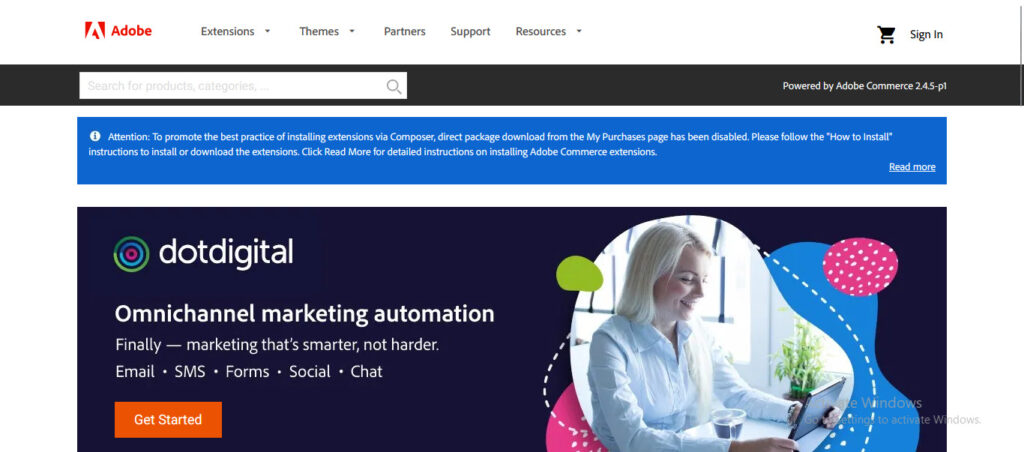
Cons of Magento. It requires a certain level of technical expertise to set up, customize and maintain a Magento store, which can be a barrier for some users.
In summary, Magento is an open-source, highly flexible, and scalable e-commerce platform that provides a wide range of features and tools to help users set up and run their online Stores. It is suitable for small and large businesses but requires a certain level of technical expertise to set up, customize and maintain a Magento store.
Magento is an open-source e-commerce platform, which means that the basic version of the software can be downloaded and used for free. However, paid versions of Magento are also available, which offer additional features and support.
The paid version of Magento is called Magento Commerce. It offers two pricing plans:
Both plans come with various features and support options, such as a dedicated account manager, 24/7 technical support, and access to the Magento Marketplace. In addition, users can also opt for a third-party hosting service, which can vary in price depending on the provider and the user’s specific needs.
It’s worth noting that, in addition to the software and hosting costs, users will also need to pay for any third-party plugins, extensions, or custom development they need, which can add up.
Magento offers a free, open-source, and paid version with two different plans, Magento Commerce Cloud and Magento Commerce On-Premises. The pricing of the paid version depends on the user’s specific needs and can vary depending on the number of products, orders, and support level required.
Amazon is a global e-commerce platform that allows individuals and businesses to sell a wide range of products to customers worldwide. It is one of the world’s largest e-commerce platforms and offers customers a wide range of products and services, including books, electronics, clothing, and food.
Amazon offers several ways for individuals and businesses to sell on its platform:
Amazon also offers various tools, services, and features such as analytics, marketing, and customer support to support sellers. Overall, Amazon is a large and established e-commerce platform that provides a convenient and cost-effective way for individuals and businesses to reach a large customer base and sell their products or services online.
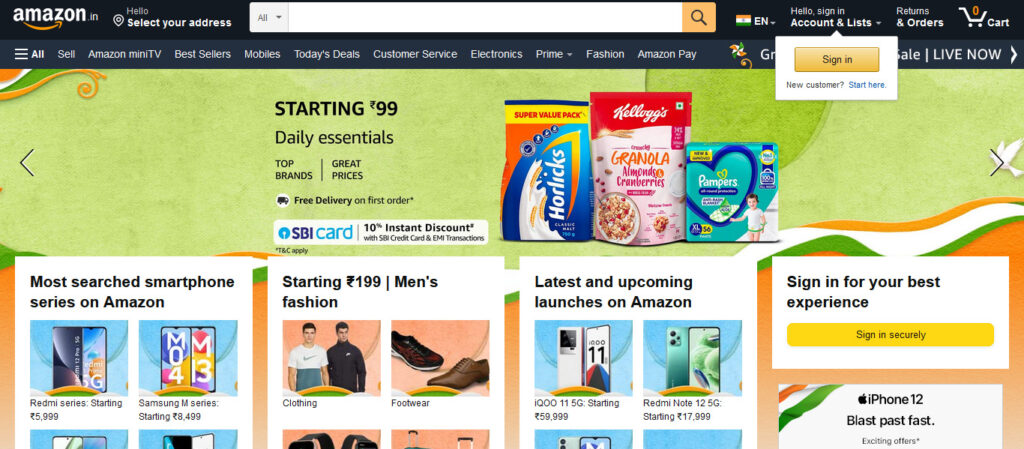
Amazon is a widely popular e-commerce platform, but like any other platform, it has its own pros and cons.
Bonanza is a popular online selling place and comes in the list of top-selling platforms. It offers several ways for individuals and businesses to sell on its platform:
It also offers various tools and services to support sellers, such as analytics, marketing, and customer support. They charge a listing fee for items and a commission on each sale.

In addition to the listing fee and commission, sellers will also need to pay for additional services such as shipping, customer service, and marketing.
It offers a variety of pricing plans to suit the needs of different sellers. From a free basic plan to a custom enterprise plan. The pricing plans vary regarding the features and support provided and the commission on sales.
Chairish is an online marketplace specializing in vintage and pre-owned furniture and home decor. It allows individuals and businesses to sell a wide range of vintage, pre-owned, and new furniture and decor products to customers worldwide.
Chairish also offers various tools and services to support sellers, such as analytics, marketing, and customer support. They charge a commission on each sale. It comes in the list of best Online Selling platforms.
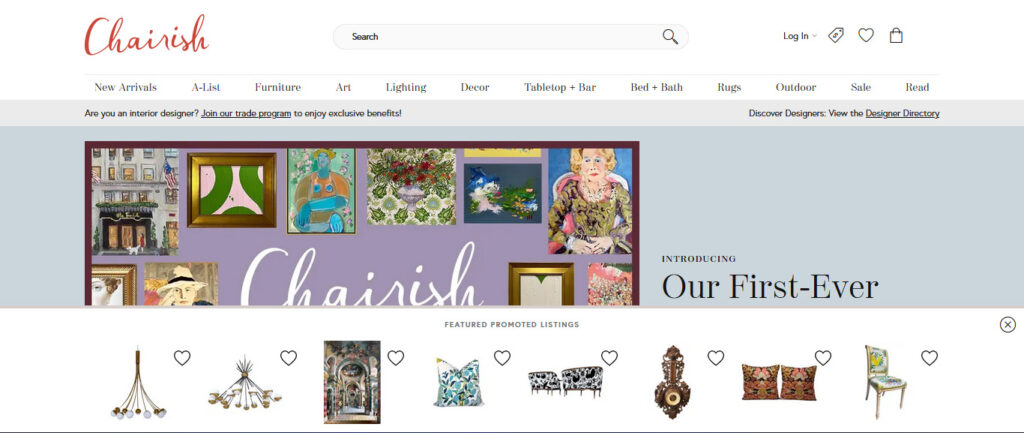
Chairish is an online marketplace specializing in vintage, pre-owned, and new furniture and home decor items. It provides a platform for individuals and businesses to sell their products and offers a variety of selling options, such as its online marketplace, White Glove Service, and Trade Program, and provides support with services such as analytics, marketing, and customer service.
Craigslist is a popular and most used online selling place. It is a local platform, which means that listings are organized by geographic area and are typically only visible to users in the same region. Craigslist is a free platform, and it’s easy to use. Users can create an account and post their listings, including images, prices, and contact information.
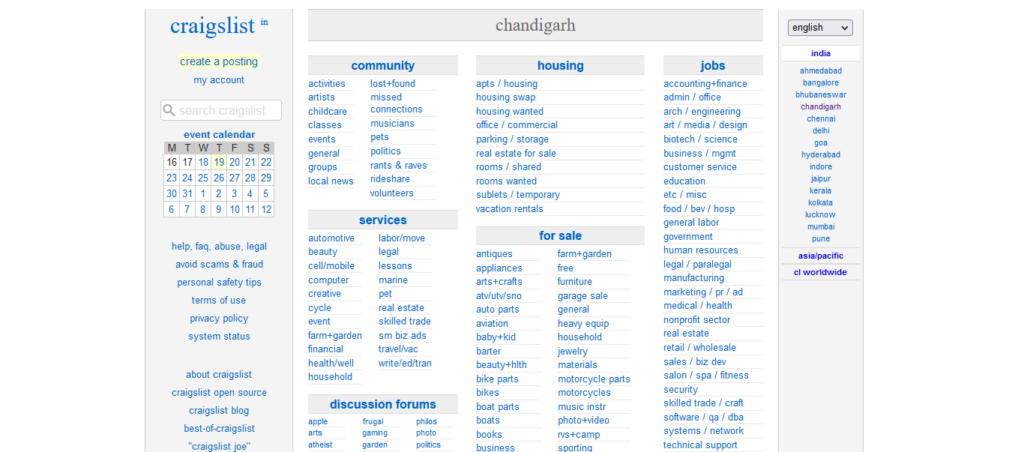
Craigslist is a popular platform for buying and selling furniture, electronics, and vehicles and finding housing rentals, jobs, and services. Users should be cautious when buying or selling items and use safe buying and selling practices like meeting in person at a public place.
Overall, Craigslist is a free and easy-to-use platform that allows individuals and businesses to list items for sale, job openings, housing rentals, and other services in their local area. It comes in the list of best Online Selling platforms. It is a popular platform for buying and selling items. But users should use caution when buying or selling items and use safe buying and selling practices.
eBay is a selling place. eBay offers several ways for individuals and businesses to sell on its platform:
It also offers various tools, services, and features such as analytics, marketing, and customer support to support sellers. They charge a fee for their service. Either as a percentage of the sale or a monthly subscription for eBay Stores.
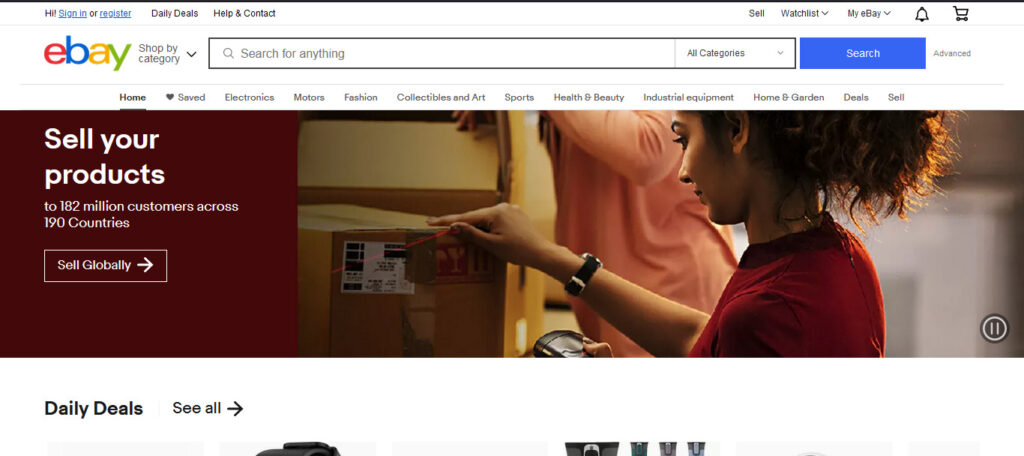
Overall, eBay is a large and established e-commerce platform that provides a convenient and cost-effective way for individuals and businesses to reach a large customer base and sell their products or services online. It comes in the list of best Online Selling platforms. It offers different selling options, such as its online marketplace, eBay Stores, and eBay Valet, and provides support with services such as analytics, marketing, and customer service.
Etsy is a popular selling website. It is a marketplace that connects buyers with independent sellers around the world. Sellers can open their online shops on Etsy and list their products for sale, setting their prices, shipping options, and policies.
Etsy is geared towards unique and special items rather than mass-produced products. It is famous for handmade items such as jewelry, clothing, home decor, and craft supplies, and vintage items such as antiques and collectibles. Additionally, Etsy allows sellers to sell digital items such as printable artwork, patterns and templates, and digital downloads.
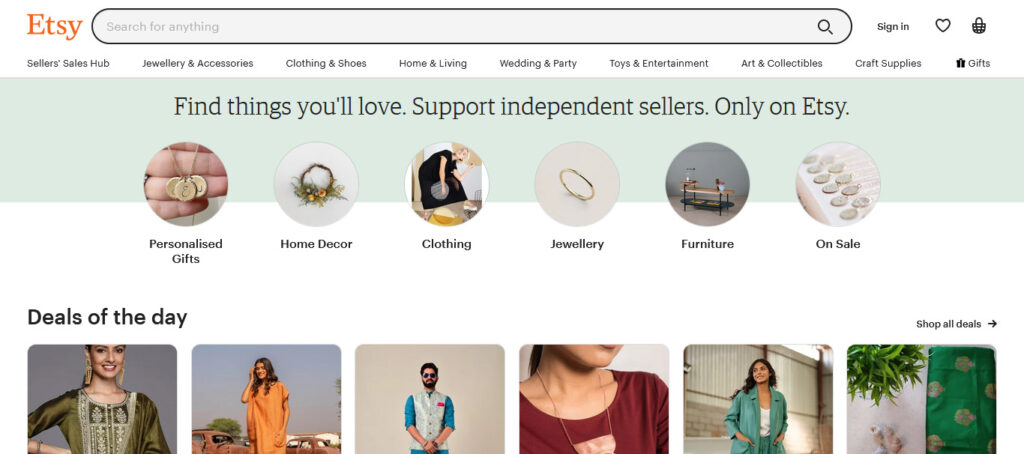
It provides various tools and services to help sellers run and grow their businesses. Such as analytics, marketing, and customer support, and offers a mobile app for buyers and sellers.
Etsy has a large and active community of buyers and sellers. And it is an excellent platform for those who want to sell unique and special items. Reach a large audience, and benefit from the support and resources provided by Etsy. It comes in the list of best Online Selling platforms.
It is an online marketplace that charges fees for individuals and businesses to sell on its platform.
It’s worth noting that fees can vary based on the location of the seller and the currency they choose to list and sell their products in.
Facebook Marketplace is a popular feature available on Facebook. Users can list items for sale by creating a post on Facebook and selecting the “Sell” option. They can include a description, photos, and a price for the item. Buyers can search for articles by category or location and contact the seller through Facebook’s messaging system to make a purchase. Facebook Marketplace is one of the top-selling platforms.

It is easy to use and can be accessed directly from the Facebook app. However, as it is a peer-to-peer platform, there’s no screening process for listings. So it’s essential for users to use caution when buying or selling items and to meet in person at a public place for the transaction.
It is a convenient, easy-to-use, and free platform, but as it’s a peer-to-peer platform. It’s essential for users to use caution when buying or selling items and to meet in person at a public place.
Nextdoor is a social networking platform that connects neighbors and local businesses. It is a platform that allows neighbours to share information, ask for recommendations, and buy and sell items within their local community. It comes in the list of best Online Selling platforms.
Users can create an account and join their neighborhood’s Nextdoor network to share information. Ask for recommendations, and buy and sell items. Nextdoor is location-based, meaning users can only see posts and listings within their neighborhoods or surrounding areas.

It also provides a platform for people to buy and sell items within their local community. Which can be convenient for buyers and sellers. But, as with any online marketplace. It’s essential for users to use caution when buying or selling items and to meet in person at a public place for the transaction.
Nextdoor is a social networking platform that is free for individuals and businesses to use. It makes money through partnerships with local businesses. Which can pay to advertise on the platform and promote their products and services to the community.
However, while there are no direct fees for buying and selling on Nextdoor. It is essential to keep in mind that Nextdoor is a peer-to-peer platform and there is no screening process for listings. Therefore, it is necessary to use caution when buying or selling items and to meet in person at a public place for the transaction.
Newegg is an online marketplace specializing in technology products such as computers, electronics, and gaming gear. It is one of the largest e-commerce platforms for technology products in the United States and offers customers a wide range of products and services. It comes in the list of best Online Selling platforms.
Newegg allows both individuals and businesses to sell their products through their platform. Sellers can list their effects on the marketplace, set their prices, and handle their shipping and customer service. It charges a commission on each sale and has a subscription service for sellers. Offering additional features like bulk listing tools, discounted fees, and more.
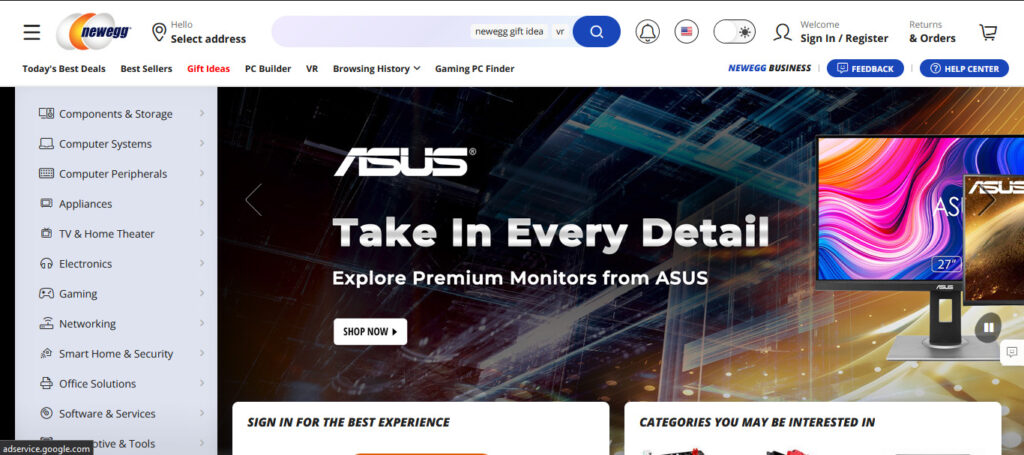
Newegg also provides various tools, services, and features such as analytics, marketing, and customer support to support sellers. They also have a robust return policy for buyers to ensure satisfaction.
Newegg is a large and established e-commerce platform specializing in technology products such as computers, electronics, and gaming gear. It provides a convenient and cost-effective way for individuals and businesses to reach a large customer base and sell their technology products online. It offers different selling options and includes analytics, marketing, and customer service services support.
Newegg offered several different membership plans for its customers. Including a free membership and paid plans with additional benefits such as free returns, expedited shipping, and special promotions. Some of the projects are:
Ruby Lane has been around since 1998 and is known for its high-quality, curated selection of items. It offers a platform for individual sellers to list and sell their items. Focusing on vintage and antique items such as jewelry, pottery, glass, art, and furniture.
Sellers on Ruby Lane pay a monthly fee to list their items for sale on the site. As well as a commission on each sale. Ruby Lane offers various services to help sellers market their items, such as professional photography and advertising.
It’s also known for its strict vetting process for sellers, ensuring that only high-quality, authentic items are listed for sale on the site. It comes in the list of best Online Selling platforms.
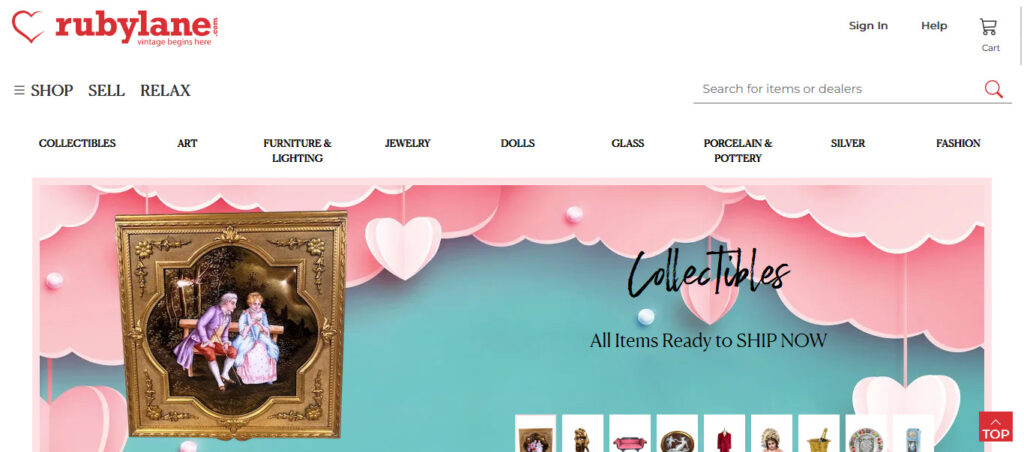
Ruby Lane is an excellent option for sellers looking to reach a specific, targeted audience of buyers interested in vintage and antique items. However, the marketplace’s high fees and competitive nature may only make it the best choice for some sellers.
Pixpa offers e-commerce functionality as part of its website building and hosting platform. This allows users to sell their work directly from their website without using a separate e-commerce platform.
Overall, Pixpa’s e-commerce functionality is an excellent solution for photographers, artists, and other creatives who want to sell their work directly from their website. It comes in the list of best Online Selling platforms.
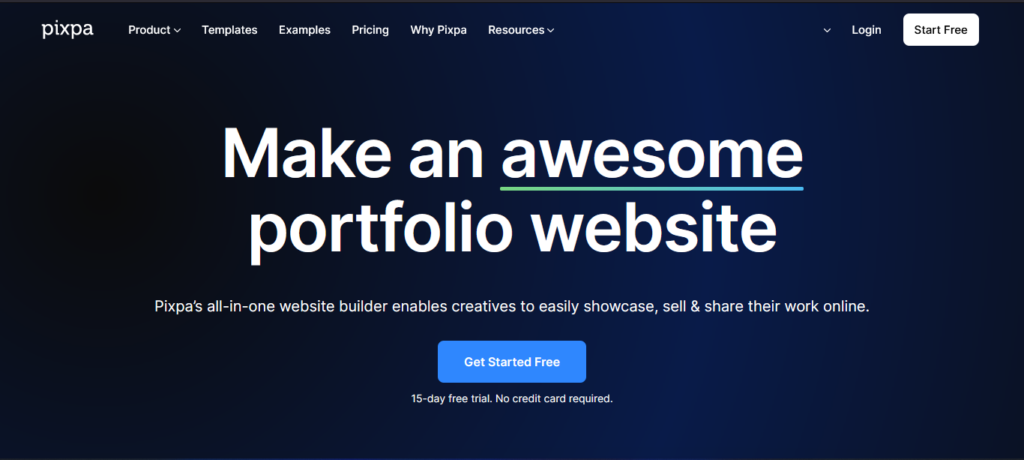
Additional costs may be involved, such as credit card processing fees when using specific payment gateways and domain name registration fees if you choose to use a custom domain name that you still need to own.
When selecting an online selling platform, there are a few key factors to consider:
It’s also a good idea to read reviews and ask for recommendations from other sellers before deciding.